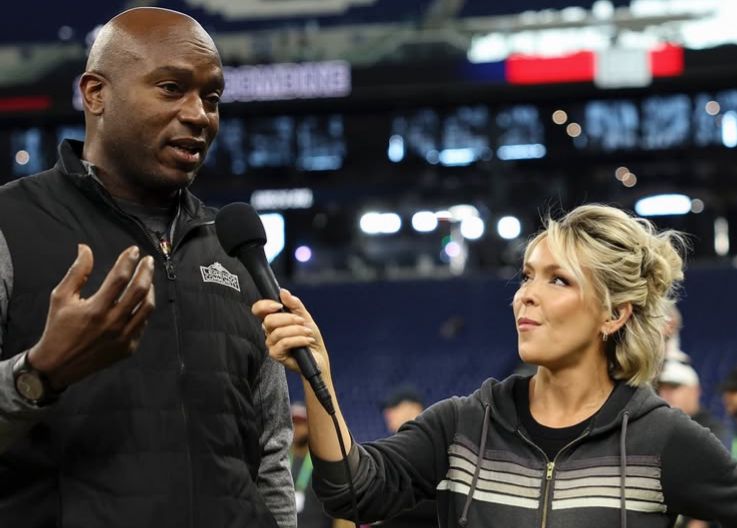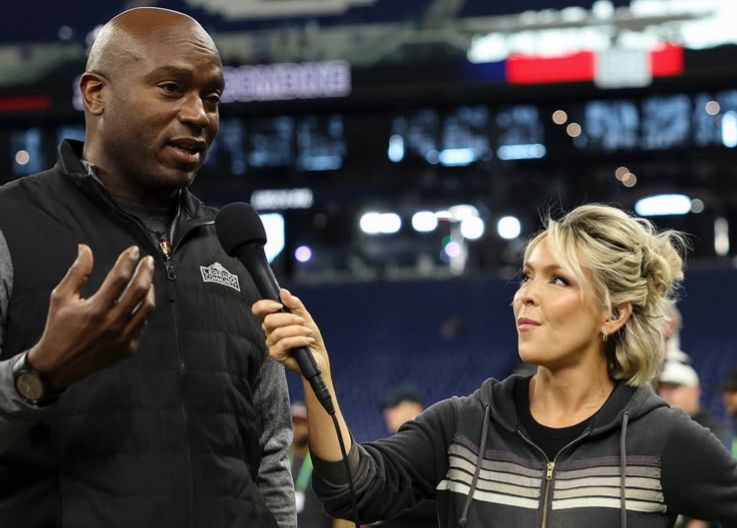



Once the anchor of Kansas City’s offensive line, Will Shields is making his voice heard well beyond the trenches. These days, the former Nebraska great holds one of the most influential roles in college football—as a member of the College Football Playoff selection committee. And he’s not just there to crunch numbers or skim résumés. The NFL Hall of Famer is focused on something deeper: the soul of the sport, and more specifically, the dying art of football rivalries.
Watch What’s Trending Now!
That’s what makes his recent comments even more timely. Speaking on 97.1 The Fan’s Rothman and Ice show on June 21, Shields didn’t shy away from addressing one of college football’s toughest growing pains: realignment and how it’s quietly killing the rivalries that once gave the game its regional flair and emotional bite.
“It changes everything,” Shields admitted when asked if the loss of matchups like Nebraska-Colorado or Nebraska-Oklahoma stung. “I mean, you think about all the things that you used to build up, and the rivalries of playing the teams in your area. To be able to say, ‘Hey, there’s recruiting grounds,’ also means you got a chance to play against a lot of the kids that you grew up with because they all went to school somewhere there in the Big 8.” That quote alone carried the weight of a decade’s worth of conference reshuffling.
Shields continued, “At that point, you got to visit and play against teammates, which was even more of the rivalry piece of building it in. But you do miss those times where you did have the big rivalry games back and forth, where you knew you were going to face these teams so many times within your career. And that gave you the opportunity to try to win—be able to go with braggin’ rights.”
This wasn’t just a trip down memory lane for Shields. As someone who started the final 36 games of his Nebraska career—and who once gained 16 yards on the last-ever Fumblerooski play against Colorado in 1992—his voice carries historical weight. Shields knows rivalries aren’t just games on the schedule. They’re tradition, geography, family pride, and personal identity all rolled into four quarters.
He’s not bitter, but he’s real. College football’s seismic shifts—driven by money, media rights, and national reach—have chipped away at some of the sport’s most cherished matchups. Nebraska bolted to the Big Ten in 2011. Colorado has bounced between conferences like a ping-pong ball. And as a result, Nebraska-Oklahoma and Nebraska-Colorado—once Thanksgiving-weekend staples—are now nothing but YouTube highlights and ESPN Classic reruns.

Imago
NCAA, College League, USA Football: Nebraska at Colorado Sep 9, 2023 Boulder, Colorado, USA Colorado Buffaloes cornerback Travis Hunter 12 upends Nebraska Cornhuskers running back Gabe Ervin Jr. 22 in the first quarter at Folsom Field. Boulder Folsom Field Colorado USA, EDITORIAL USE ONLY PUBLICATIONxINxGERxSUIxAUTxONLY Copyright: xRonxChenoyx 20230909_jcd_ac4_0017
Still, the passion lives on. Just ask Shedeur Sanders, who taunted Nebraska with a watch flex in 2023 after a 36-14 win. Or ask freshman Dylan Raiola, who returned the favor in 2024 by leading the Cornhuskers to a 28-10 payback victory. Shields may be nostalgic, but the fans clearly haven’t forgotten. Some rivalry games have faded but not disappeared. The problem is—these games aren’t annual anymore. And that’s what’s slowly draining their power. And here comes…
The Real threat to the USC-Notre Dame rivalry game
While Nebraska and Colorado’s rivalry is fractured by geography, another blueblood battle is being threatened by playoff politics: USC vs. Notre Dame. This isn’t just any game—it’s one of the sport’s crown jewels. Since the 1920s, the Trojans and Fighting Irish have clashed with pride, prestige, and Heisman hopes on the line. Unlike many other rivalries, this one’s survived wars, scheduling chaos, and shifting TV deals. But as the College Football Playoff format evolves, even this legendary showdown is now at risk.
USC’s move to the Big Ten brings more than just new opponents. It brings packed schedules, coast-to-coast travel, and playoff pressure. With tougher conference matchups already crowding the calendar—think Ohio State, Michigan, Penn State—Lincoln Riley’s program has become increasingly hesitant about keeping Notre Dame on the non-conference slate.
“We will at the appropriate time,” Riley said when asked about renewing the series by On3’s Pete Nakos, choosing not to dive further into the debate. USC wants breathing room before locking in a rivalry that might jeopardize their playoff path. And you can’t blame them—USC still hasn’t made a CFP appearance. In an era where one loss can tank a season, voluntarily adding Notre Dame to your resume might feel like picking a fight when you’re already outnumbered.
Notre Dame, on the other hand, remains solo—independent, proud, and perpetually hungry for a banner game. “I think Southern Cal and Notre Dame should play every year for as long as college football is played,” Notre Dame AD Pete Bevacqua said, echoing the thoughts of most college football purists.
Even Irish head coach Marcus Freeman didn’t hold back: “It’s a great rivalry for all of college football. If it was up to me, we would play them every single year for the rest of college football time.” The sentiment is clear. USC-Notre Dame isn’t just a rivalry. It’s a cultural event—one of the few remaining non-conference matchups that still commands national attention regardless of playoff implications.
But as realignment and playoff restructuring speed forward, these games become collateral damage. Schools are protecting their records, dodging scheduling landmines, and tailoring their calendars to fit the CFP model.





